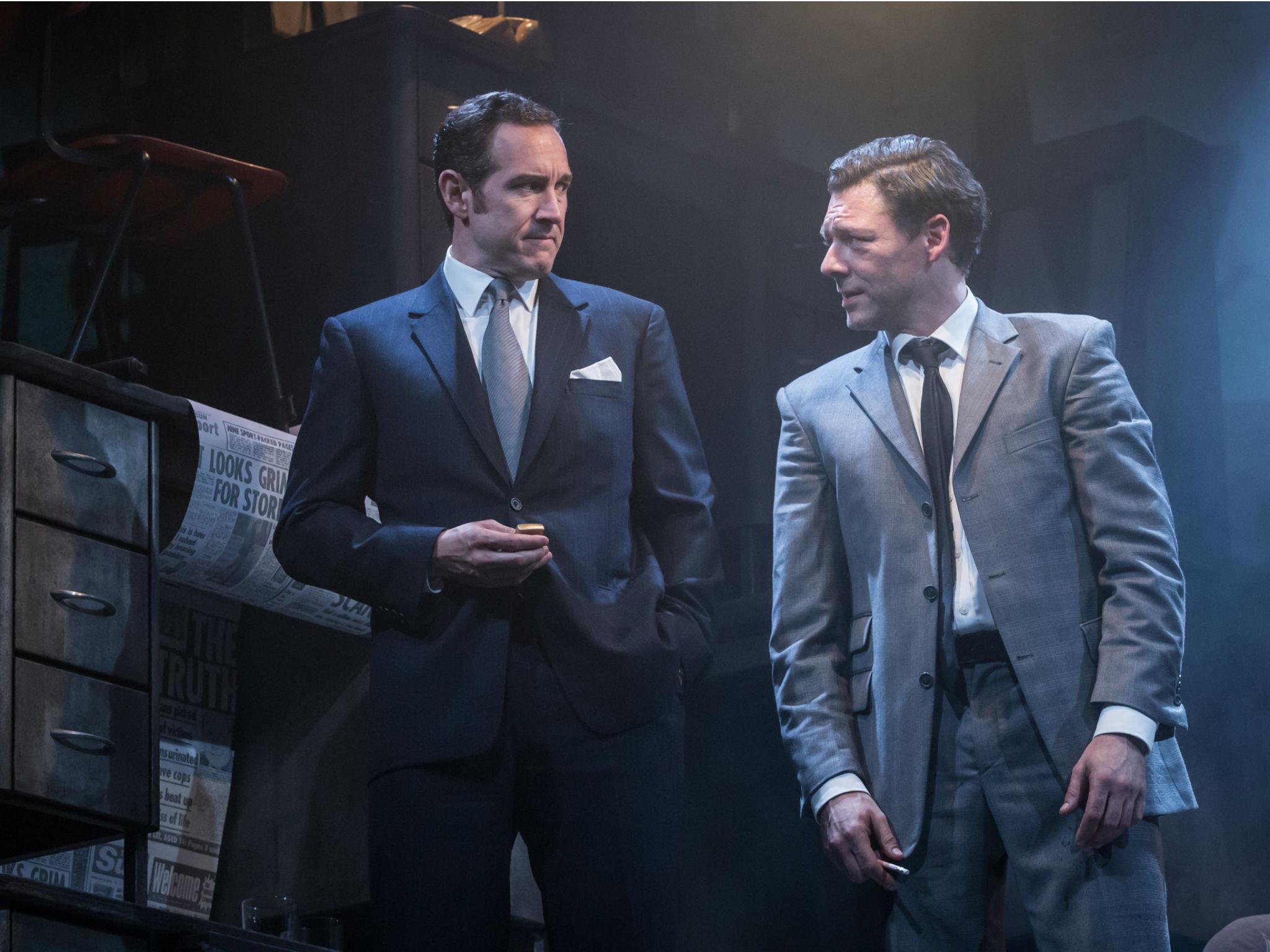Ink, Almeida, London, review: An impressively unpreachy look at the red tops’ circulation wars
James Graham's new play about the rise of The Sun newspaper stars Bertie Carvel as Rupert Murdoch and is directed by Rupert Goold

Your support helps us to tell the story
From reproductive rights to climate change to Big Tech, The Independent is on the ground when the story is developing. Whether it's investigating the financials of Elon Musk's pro-Trump PAC or producing our latest documentary, 'The A Word', which shines a light on the American women fighting for reproductive rights, we know how important it is to parse out the facts from the messaging.
At such a critical moment in US history, we need reporters on the ground. Your donation allows us to keep sending journalists to speak to both sides of the story.
The Independent is trusted by Americans across the entire political spectrum. And unlike many other quality news outlets, we choose not to lock Americans out of our reporting and analysis with paywalls. We believe quality journalism should be available to everyone, paid for by those who can afford it.
Your support makes all the difference.To 1969, when a beleaguered, high-minded newspaper is sold to an Australian sheep-farmer with ambitions to turn it into a popular tabloid. The rag is The Sun, the proprietor Rupert Murdoch – and the playwright retelling this story, This House writer James Graham.
Graham gets a galloping good yarn out of The Sun’s rise, framed by meetings between Murdoch and his chosen editor, Larry Lamb. They discuss what makes a good story: the best story is one that’s true, we’re told, but “for it to be heard it has to be Told Well”.
Their first meeting twists, the location shifting, the waiter recast, the truth massaged: it’s a clever opening acknowledgement of both the way tabloids spin a story and the way a playwright turns a true historical moment into an entertainment.
And entertain Ink certainly does: it’s an impressively unpreachy look at the red tops’ circulation wars, that goes at the clattering pace of a typewriter in Rupert Goold’s typically lively production. It’s headlined by two excellent performances: Bertie Carvel confirms that he’s one of the most physically fascinating actors working today: his Murdoch is a crabbed thing, hands crooked and twisting, jaw tucked into his chest, a contorted smirk suggesting the yearning of an outsider as well as amused contempt for anyone less ruthless that himself. Richard Coyle as Larry Lamb convincingly charts a journey from quietly ambitious union man to hardened editor who’ll do anything for a scoop.
The first half is a canter through the paper’s transformation, in which you can’t help but root for Lamb’s team, a rag-bag of pinched hacks. It bursts over Bunny Christie’s set, a teetering mountain of desks, streaked with ink. Goold cuts through what, in other hands, might have been tedious swathes of exposition: Lamb’s comically desperate recruitment drive turns into a dance sequence, while the actual processes of hot metal printing are lovingly staged with exaggerated hisses and gongs, like some ancient religious ceremony. The paper’s breakthrough moment comes in Lamb’s riotous brainstorming of what people actually want: free stuff, TV and sex being his team’s honest – and frankly game-changing – conclusions.
Ink initially refuses to moralise, instead delivering heated debate about the purpose of newspapers: are they for the improvement of the working classes, or should readers be given what they like? The Sun’s make-it-new “disruption” seems exciting: an antidote to the patrician stuffiness of the establishment. They promise “to punch up, never down”, a line that raises eyebrows today. But changes are also driven by Murdoch’s canny spotting that individualism is on the rise, collectivism on the wane. It becomes a battle of old vs new, high vs low, the market vs the collective.
But the race to the top of the sales board quickly turns into a race to the bottom, in moral terms. The second half shows the cost, first when Lamb insists on The Sun reporting on the kidnap of Muriel McKay, the wife of Murdoch’s own deputy, Alick, with gruesome sensationalism, and secondly with the introduction of the Page 3 nude. Graham falters a little here; the sensitive art vs pornography debate Lamb and model Stephanie Rahn have, and the hand-wringing that follows, seem out of step with the cut-throat milieu he’s created, a slight sop to modern audiences.
Nonetheless, Ink shows how rapidly ambition can corrupt – and how Lamb and Murdoch’s relentless stoking of appetites for smut, scandal and sensation in exchange for sales changed the landscape of the British media forever. Graham and Goold wrap all this up in a damn good story, Told Well.
Join our commenting forum
Join thought-provoking conversations, follow other Independent readers and see their replies
Comments